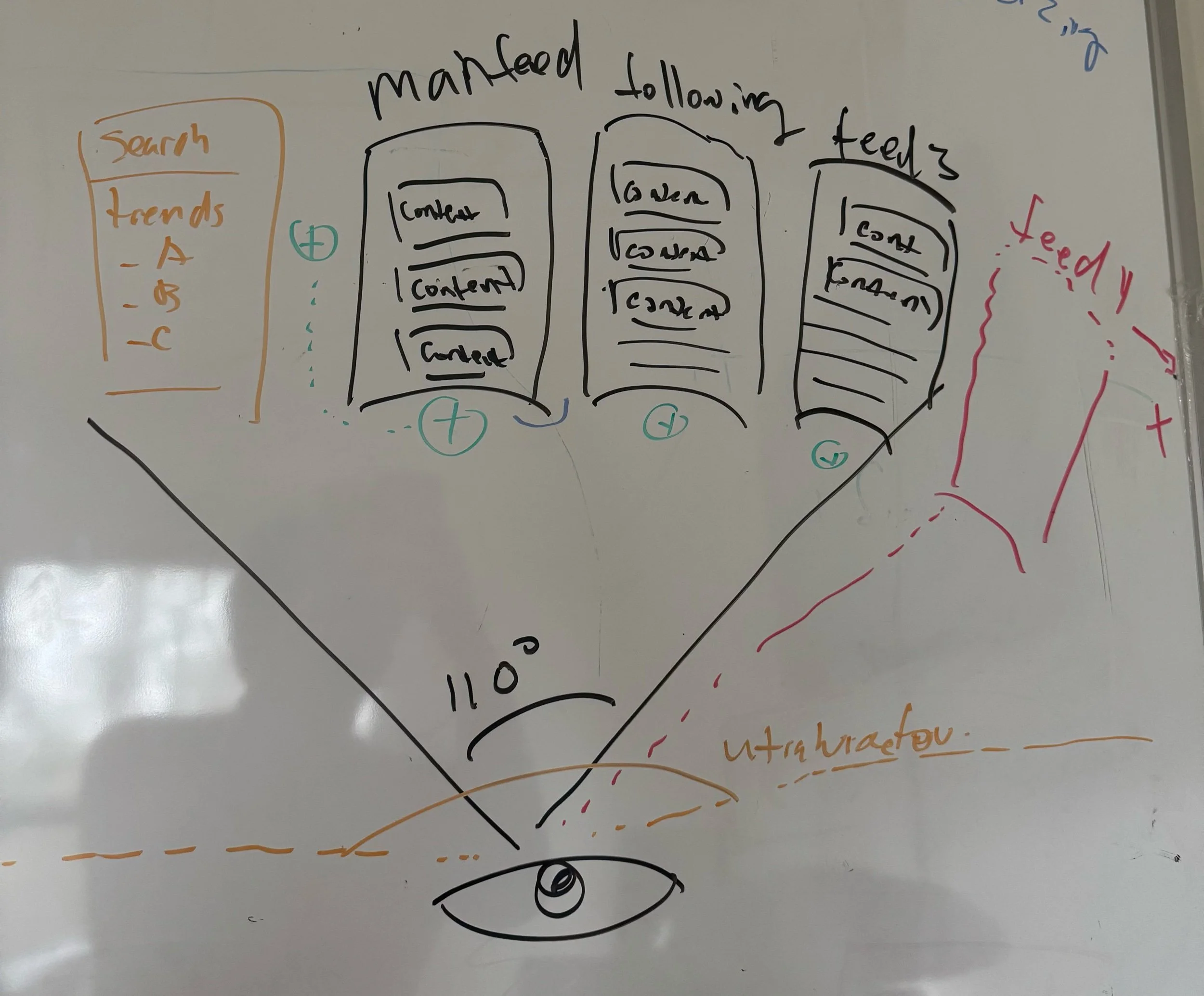The Hidden Power Dynamics of Job Security
A Developer's Perspective on Pain-Point Marketing in Tech
I was debugging a particularly annoying stored procedure, the kind that's been touched by so many hands over the years it looks like a digital version of Ship of Theseus, when the message arrived. An old acquaintance wanted to "catch up about career development." The timing was almost poetic – I had just finished venting about not getting a raise, despite turning an ancient Microsoft Access database into something that actually functions in this century.
This same person had invited me to an MLM meeting back in 2015, which resulted in years of tactical radio silence from my end. The kind of silence you maintain when someone tries to sell you on the dream of being your own boss through the magic of nutritional supplements. So naturally, my cynicism was already doing warm-up stretches.
What unfolded was fascinating – a masterclass in pain-point marketing wrapped in the contemporary language of tech hustle culture, delivered while I was literally maintaining systems that process millions of financial transactions daily at a household name in fintech. The cognitive dissonance was almost artistic.
The Anatomy of Pain-Point Marketing (Or: How I Learned to Stop Worrying and Love My VB.NET Code)
The approach was textbook, but with a modern tech twist. First, identify a vulnerability (my frustration about raises), then amplify it into a full-blown crisis (job security in tech), and finally, present a solution (coaching services, because of course). But what makes this particularly fascinating is how it plays into broader narratives about tech career development and job security.
Picture this: I'm sitting there with my VS Code open, probably on my third coffee of the day (a necessity when dealing with Visual Basic), using ChatGPT to help me optimize some legacy code that's older than some junior developers' coding experience. Meanwhile, I'm being told that I'm "easily replaceable" and need multiple side hustles to survive in tech.
The pitch usually goes something like this:
- You're easily replaceable (said to someone maintaining critical financial infrastructure)
- Your current skills aren't enough (while I'm juggling legacy and modern systems)
- The market is always changing (true, but legacy systems are forever)
- You need multiple income streams (because apparently saving the company $150k annually isn't enough)
- You need a "side hustle" (because maintaining systems that process millions in transactions is just a hobby?)
The irony was thick enough to require its own garbage collection.
The Reality of Modern Development (Or: How I Learned to Love the Legacy Code)
Let me paint you a picture of my current reality: Through strategic use of AI assistance and deep system knowledge, I maintain legacy systems that would make a tech archaeologist weep. My position involves understanding and maintaining Visual Basic .NET applications that, while dated enough to have voted in the last election, are absolutely crucial to the company's operations.
Recently, I replaced an old Microsoft Access application (think digital antique) with a modern Windows Forms solution. The efficiency improvement wasn't just good – it was "cancel the job requisition for a new analyst" good. We're talking 80% improvement, or roughly $150,000 in annual savings. Not bad for "just" maintenance work, right?
But here's where the pain-point marketing narrative completely misses the mark, like a CSS selector in Internet Explorer: they see "just" a developer doing "just" maintenance work. What they don't see is the value creation, the risk management, and the institutional knowledge that makes experienced developers in established companies particularly valuable.
Here's a fun fact: when I update a stored procedure, I'm not just writing code – I'm touching systems that process more money daily than most startups see in their lifetime. But sure, tell me more about how I need a side hustle selling coaching services.
Power Dynamics in Tech Employment (Or: Foucault Would Have Loved Legacy Systems)
This is where my inner Foucault gets particularly excited. The hustle culture narrative presents a perfect example of what he might call a "regime of truth" – a set of discourses that society accepts and makes function as true. The idea that developers need constant side hustles, that they're easily replaceable, that they need to be grinding 12+ hours a day – these are all part of a power dynamic that benefits certain interests.
It's particularly amusing when someone suggests I'm easily replaceable while I'm literally the only person who understands why certain stored procedures need to run in a specific order to prevent the financial equivalent of a butterfly effect. The kind of knowledge that makes senior developers wake up in cold sweats.
The Mathematics of Security (Or: How I Accidentally Saved More Than My Salary)
Let's talk numbers, because they tell a story that would make even the most enthusiastic hustle culture advocate pause mid-LinkedIn motivation post.
Through strategic use of modern tools and deep system knowledge, my workday encompasses:
- Focused, AI-assisted development that dramatically accelerates legacy code maintenance
- Critical system maintenance (because someone has to know why that one flag can never be set to true)
- Security compliance work (PCI compliance is my favorite kind of puzzle)
- Process improvements (or as I like to call it, "making ancient systems play nice with modern tools")
- System optimization (teaching old code new tricks)
I recently found myself explaining to a junior developer why we can't just "rewrite everything in React." The look on their face when I explained the business logic embedded in some of our stored procedures was priceless. It was like watching someone realize that their "simple home renovation" just uncovered load-bearing walls.
The cost of replacing someone in my position? Let's break it down:
- 6-12 months recruitment (finding someone who knows both modern and legacy systems)
- 1-2 years of training (because some of this knowledge isn't in any documentation)
- Security clearance process (fun times)
- Knowledge transfer time (hope you like reading comments from 2008)
- Risk of system disruption (remember that flag I mentioned? Yeah.)
And all this assumes you can find someone who's willing to learn Visual Basic in 2024. That's like finding a developer who's excited about maintaining COBOL – they exist, but they know exactly how valuable they are.
Modern Tools and Authentic Value (Or: How I Learned to Stop Worrying and Love AI)
The reality of modern development is far from the hustle culture fantasy of grinding out code for 12+ hours a day while subsisting on energy drinks and dreams of unicorn stock options. Through strategic implementation of AI tools and automation, I've transformed what used to be days of tedious code analysis into streamlined, efficient processes.
My optimized workflow involves:
- AI-assisted coding (because even AI gets excited about optimizing nested IF statements)
- Systematic testing (because production is everybody's problem)
- Efficient documentation (future me will thank present me)
- Strategic problem-solving (or as I call it, "digital archaeology")
- Continuous learning (currently: trying to understand why that one procedure only fails every third Wednesday)
The beautiful irony? The same person telling me I need side hustles probably doesn't realize that I've automated half my tasks using AI while maintaining critical financial infrastructure. It's like being told you need a paper route while you're managing a mint.
The Truth About Job Security (Or: Why Legacy Code is Better Than a Golden Handcuff)
The real job security in tech isn't about frantically accumulating side hustles or trying to become a JavaScript framework influencer. It's about understanding systems that are too critical to fail and too complex to replace.
When someone tells me I'm easily replaceable, I think about:
- The time I prevented a major issue by recognizing a pattern in our transaction logs that only showed up during leap years
- The day I optimized a process so well they cancelled a new hire
- The moment I realized I was the only one who knew why certain systems had to run in a specific order
It's not about being irreplaceable – it's about being valuable enough that replacing you is more expensive than keeping you happy. And yes, I'm looking at you, upcoming quarterly review.
Looking Forward (Or: The Future is Just Legacy Code That Hasn't Been Written Yet)
The interaction with my acquaintance was ultimately valuable, not because his pitch was convincing, but because it prompted this analysis while I was waiting for a particularly lengthy stored procedure to finish executing. It highlighted the contrast between hustle culture's artificial crises and the real value creation happening in enterprise technology.
For developers working in established companies, particularly in fintech, the path to security isn't through side hustles and constant grinding. It's through understanding and leveraging your actual value:
1. Deep System Knowledge
- Mastering the intricacies of critical systems
- Understanding the business logic that's evolved over years
- Knowing which legacy components are too risky to replace
- Maintaining institutional knowledge that's not documented anywhere
2. Strategic Process Optimization
- Identifying opportunities for meaningful improvements
- Implementing solutions that deliver measurable value
- Balancing modernization with stability
- Creating efficient workflows that scale
3. Risk Management Expertise
- Understanding the implications of system changes
- Preventing potential catastrophes before they happen
- Maintaining security compliance while improving functionality
- Managing technical debt strategically
4. Continuous Evolution
- Staying current with modern tools and practices
- Applying new technologies to legacy challenges
- Building bridges between old and new systems
- Adapting to changing business needs while maintaining stability
The next time someone tries to sell you on the precarity of your position or the necessity of side hustles, remember: they probably can't tell a stored procedure from a stored value. Real security comes from understanding your actual value proposition and continuing to deliver it effectively.
What they don't tell you in those coaching sessions is that true job security often lies in being the person who can confidently say "no" to risky changes while providing viable alternatives. It's about being the voice of reason who understands both the legacy constraints and the path forward.
As for me? I'll keep my strategic efficiency, my AI-assisted development practices, and my intimate knowledge of why certain systems need specific Windows updates installed in a particular order. The hustle culture can keep its endless grinds and multiple side hustles. I prefer creating real value efficiently, even if that means occasionally having to explain why we can't just "move everything to the cloud next sprint."
After all, in the words of a senior developer I once knew: "Legacy code is just battle-tested production code that's survived long enough to become embarrassing."
*The author maintains critical systems at a major fintech company while reading Foucault and experimenting with AI tools. When not preventing financial catastrophes through the careful maintenance of ancient VB.NET code, they can be found explaining to new developers why some things are better left unchanged. Follow for more analyses of tech culture, power dynamics, and modern development practices.*



